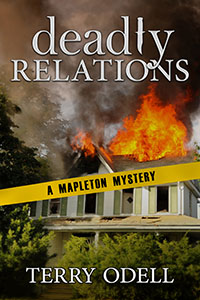What’s Your Writing Time Like?
Terry Odell

Image by 0fjd125gk87 from Pixabay
We’re four days into the new year, and by now, I’m sure everyone’s been inundated with posts about the good, the bad, and the ugly of 2022, and suggestions for a better 2023.
I’ll offer my take on why I don’t make resolutions, and that’s it on the subject of New Years, other than wishing everyone at TKZ a very positive one.
Okay … on with a more writerly offering. Another one of my questions about how people approach their writing.
Note: I’m talking about getting words down, not ideas. To me, that’s a different facet of the process.
I’ve got a writer friend who wants large chunks of time for fear she’ll get “on a roll” and then have to leave for lunch, an appointment, watching the football game, whatever, and lose momentum. She’ll say, “It’s almost lunchtime, so no point in starting now.” There’s nothing wrong with that. She produces and meets her deadlines, but her comment got me thinking about how other writers utilize time.
I’ll go first. Disclaimer: I’m a retired empty-nester with a husband who understands that I spend time at the keyboard. (In fact, I think he’s glad I do.)
My first activities of the day (which starts for me at about 5:30) include checking email, doing the Mini-Cross, playing Tiles, and chatting with one of my critique partners. Breakfast fits in there somewhere, along with crushing a few candies. Getting the “easy stuff” out of the way until I’m coherent. I can barely find the right keys for the crossword, so being productive first thing doesn’t work for me.
My first “writing” thing comes after I’ve finished my playtime. It’s probably around 7:30. I look at the marked up chapter from the previous night’s read. If I didn’t end a scene or chapter and had nothing to print, then I have nothing to tweak, which throws off my morning routine. I’ll reread to see where I left off and try to pick things up from there, but it takes longer to get into the story.
I know I’ll be interrupted for dog walkies around 9:30, but unlike my writer friend, instead of waiting until I get back, I try to move forward. Once I get going, I keep the manuscript open on the PC all day and work on it as time permits (which, as mentioned above, for an introverted, retired empty-nester is significant). If I have appointments, or need to cook dinner, or it’s laundry day, I write until it’s time to deal with them, take care of the chore, and return to the work. Looking at my productivity, I do better in the afternoon, as there seem to be fewer things needing my attention, so I can remain immersed in the story. But a goal of 500 words before lunch and at least 1000 words a day is my norm.
I know some people carry a notepad or recording device and are never not writing. They’ll write a paragraph, or a single sentence, utilizing time in waiting rooms, car pool pickup/dropoff lines, sporting events. If they’re plotters/outliners, they might work on a scene that’s way down the line. That doesn’t work for me. I write at my computer, and figure my word count output is justification enough for leaving the manuscript alone if I’m not around the house.
In a Q&A session with Nora Roberts, she says she works out 90 minutes a day and works in her office 6-8 hours a day. That’s her job, as she puts it, and she takes it seriously (obviously, to look at her output).
So, what kind of writer are you? Bits and pieces? Longer sessions? Dedicated hours for writing when nothing else is allowed to happen? Can you hop around the story as ideas hit, or are you (like me) extremely linear and everything hits the page in the order it happens in the story?
Bargain/BSP Time: The first book in my Mapleton series, Deadly Secrets, is perma-free, and the second book, Deadly Bones, is on sale for 99 cents this week only. My 11th book in this series, Deadly Relations, is about ready to go to my editor. I’m hoping it’ll be ready to go in time for Left Coast Crime in March—and hope to see some TKZers there.
 Coming Soon! Deadly Relations.
Coming Soon! Deadly Relations.
Nothing Ever Happens in Mapleton … Until it Does
Gordon Hepler, Mapleton, Colorado’s Police Chief, is called away from a quiet Sunday with his wife to an emergency situation at the home he’s planning to sell. A man has chained himself to the front porch, threatening to set off an explosive.
 Terry Odell is an award-winning author of Mystery and Romantic Suspense, although she prefers to think of them all as “Mysteries with Relationships.”
Terry Odell is an award-winning author of Mystery and Romantic Suspense, although she prefers to think of them all as “Mysteries with Relationships.”
